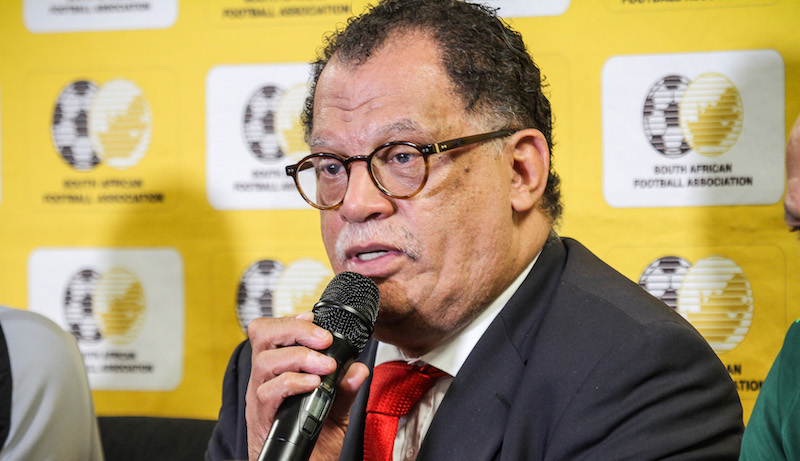South African Football Association president Dr Danny Jordaan has given an update on the organisation’s Vision 2022 project, saying the progress they have made in the last five years has been staggering.
Jordaan has detailed the challenges the organization faced, and the measures that have been put in place to improve the level of both men’s and women’s football in the country.
”When we started with Vision 2022, we did not have enough coaches and the player-coach ratio was huge,” Jordaan said.
“It was over 200 players for one coach, and very often that coach would have a D-License or no qualifications at all. So we had to focus on getting more qualified coaches.
“Secondly, we did not have enough women coaches and referees, so female technical officers was a big focus.
“Thirdly, we had to have structured competitions at junior level, so we had to go down to the Local Football Associations in our regions, to make sure they had Under-15, -17 and -19 leagues. That is still a work in progress.
“Finally, our national teams had to qualify for the Africa Cup of Nations and the World Cups at junior level.”
Jordaan says the strong showing by South African teams in continental and global football has been a boost to the organization and shows they are on the right track.
“The result was that from 2015, our Under-17s men qualified for the World Cup in Chile. The Under-17 women qualified for the World Cup in Uruguay.
“The Under-20s men qualified for the World Cup in South Korea (2017) and Poland (2019), while the Under-23s, both men and women, qualified for the 2016 Rio Olympic Games.
“Bafana Bafana qualified for the Cup of Nations in 2015 and 2019, while Banyana Banyana have qualified for every Cup of Nations since 2015, and also qualified for their first Women’s World Cup in France in 2019.
“So all of our teams qualified for the World Cups, except the Under-20 women’s team and the men’s senior teams. We are very happy with the results.”
Jordaan says women’s football has been a special focus for SAFA and will remain so as they look to boost participation numbers significantly.
“All of our women’s teams are now coached by women, and they are all qualified coaches,” he said.
“We have also established the women’s national league to go with the SASOL provincial league. It was the first year [in 2019] but we are making progress. We are one of the few federations on the African continent to have a women’s league.
“We have 456,000 women players at the moment, but we want by 2022 to raise that number to 1-million.”

